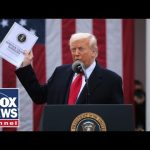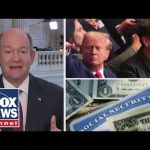The Trump administration has declared April 2, 2025, as “Liberation Day,” marking a bold new chapter in U.S. trade policy. Spearheaded by Peter Navarro, Senior Counselor for Trade and Manufacturing, the initiative introduces sweeping tariffs aimed at combating decades of unfair trade practices. Navarro has framed the move as a “national emergency,” highlighting chronic trade deficits and non-tariff barriers such as currency manipulation, export subsidies, and intellectual property theft that have eroded America’s manufacturing base and economic sovereignty. The administration’s unapologetic stance is clear: these tariffs are not merely taxes but tools to restore American industry and protect national security.
The tariffs, which target a wide range of imports including automobiles, steel, aluminum, and pharmaceuticals, are expected to generate $600 billion annually. Navarro has argued that this revenue will fund tax cuts and incentivize domestic production, calling it the largest “tax reduction” in modern history. Critics, however, warn that these measures could lead to higher consumer prices and strained international relations. Yet the administration remains steadfast, emphasizing the long-term benefits of economic independence over short-term market fluctuations. This bold strategy underscores President Trump’s commitment to putting America first.
Navarro’s rhetoric is as striking as his policies. He has lambasted past trade agreements like NAFTA and China’s entry into the World Trade Organization for decimating American jobs and manufacturing. By contrast, he credits Trump-era tariffs with stabilizing wages for blue-collar workers and revitalizing key industries. Navarro’s vision is unapologetically protectionist, rejecting globalist norms in favor of policies that prioritize American workers and industries. While economists debate the efficacy of such measures, Navarro insists that they are essential to reversing decades of economic decline.
The administration’s approach also highlights a broader ideological divide. While globalists decry tariffs as regressive, proponents argue they are necessary to safeguard national interests. Navarro has pointed out that foreign nations have long exploited the U.S. through higher tariffs and non-tariff barriers while benefiting from America’s open markets. The new measures aim to level the playing field by holding these nations accountable for their economic practices. This unapologetic strategy challenges the status quo of global trade and reasserts America’s role as an economic powerhouse.
Ultimately, “Liberation Day” represents more than just a policy shift—it is a declaration of economic sovereignty. The Trump administration’s willingness to confront entrenched global trade norms reflects its commitment to restoring America’s industrial strength and protecting its workers. While critics may focus on potential risks, supporters see this as a necessary course correction after decades of economic mismanagement. With these tariffs in place, the administration aims to usher in a new era of prosperity where American manufacturing thrives once again.




